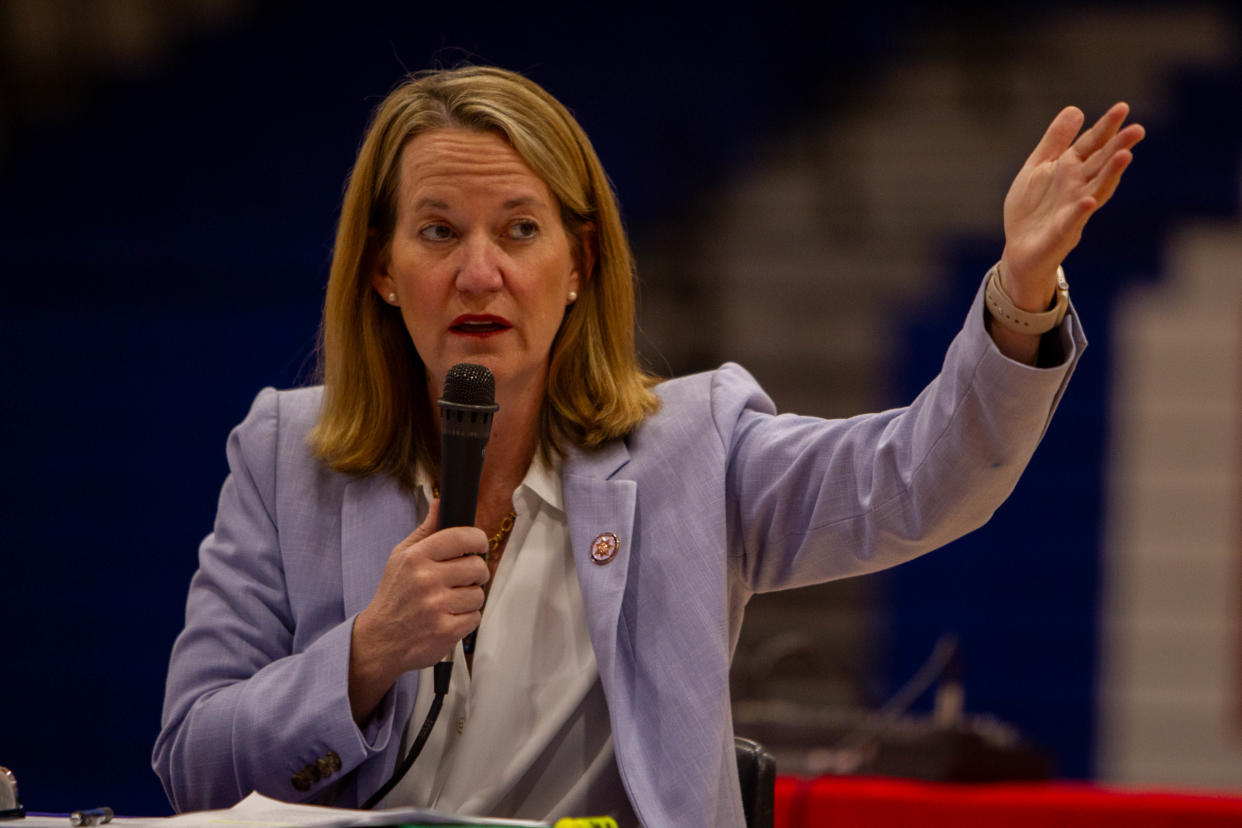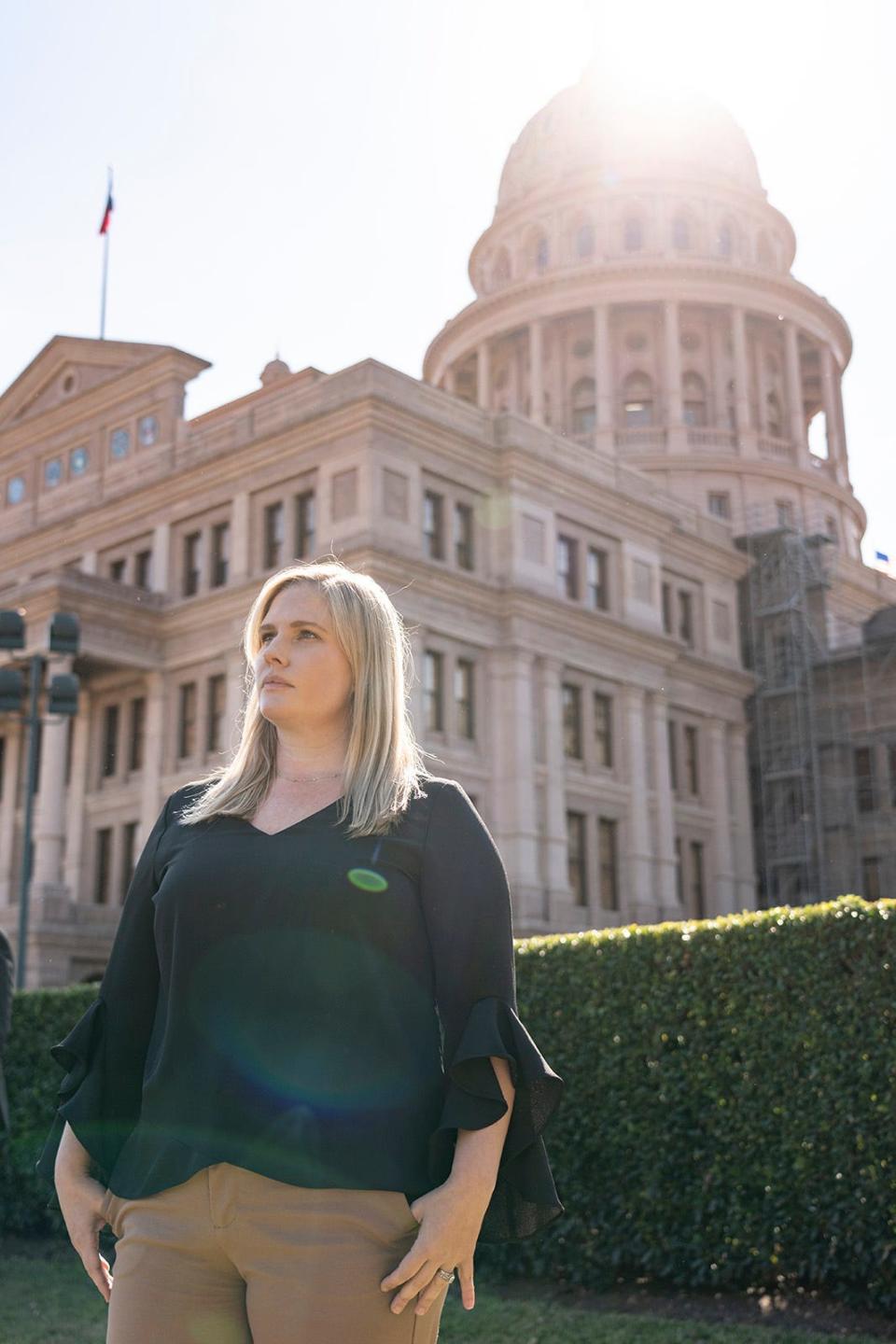Amid Texas abortion ban, Democratic AGs meet in Austin to strategize on reproductive rights

While Attorney General Ken Paxton and other top Texas officials convened at the state GOP convention in San Antonio last weekend, Democratic attorneys general from across the U.S. quietly met in Austin to strategize on abortion access — a procedure that has been nearly eliminated by the state's Republican-controlled Legislature and fiercely defended by Paxton.
The Democratic Attorneys General Association gave the Austin American-Statesman, a USA Today Network partner, exclusive access to the group’s conference on May 22-23, one of several quarterly conferences that are typically closed to the press and very rarely take place outside of blue states.
The group is a political action committee that supports the campaigns of attorney general candidates and facilitates collaboration among them once they are elected. Its representatives said it met with both candidates and Democratic groups while in Austin, a sign that it is holding out hope for an eventual shift away from a Republican-controlled state government. No Democrat has won statewide office in Texas since the 1990s.
“We've heard the grumblings on the ground: People here in Texas want change,” said Nevada Attorney General Aaron Ford, who grew up in Dallas and graduated from Texas A&M University. “It may not be tomorrow, but in the foreseeable future, we anticipate that the people's voices will be heard. … We’re here also to stake our claim, to demonstrate our dedication to Texas, and to recognize in the foreseeable future that we'll be very active here.”
The group’s decision to meet in Austin also highlights the central role attorneys general play in litigating fights over new abortion restrictions at the federal and national level, and it comes as 12 attorney general seats nationwide are at stake in November's elections.
Since the U.S. Supreme Court reversed Roe v. Wade, the landmark case that had established a national right to abortion, in June 2022, Republican attorneys general have served as the primary enforcers of a wave of new state-level abortion bans. Their Democratic counterparts have taken on a new role in defending access to the procedure — putting them at odds with Paxton in several major cases, such as in a case that Democratic attorneys general filed to protect access to mifepristone, a pill for miscarriage management and abortion.
None have embodied the role of enforcer more publicly than Paxton, whose request to the Texas Supreme Court to deny Dallas mother Kate Cox’s request for a health-preserving abortion of a fatally ill pregnancy rippled across the nation in December. Paxton also played a primary role in promoting and defending Senate Bill 8, a six-week Texas abortion ban that went into effect nine months before Roe fell.
The Statesman accompanied attorneys general from New York, Arizona, Nevada, Massachusetts, Oregon, Connecticut, Illinois, New Jersey, Minnesota and Washington, D.C. on a visit to Austin Women’s Health Center, a former abortion clinic that is now one of Texas’ last centers for post-abortion care.
As they heard about the clinic’s struggle to remain open and the calls it continues to receive from women desperate to terminate their pregnancies — women the clinic turns away to comply with state law — the top lawyers of several solidly Democratic states expressed disbelief at the lack of exceptions for rape and fatal fetal anomalies in Texas’ near-total abortion ban.

The attorneys were visibly shaken by the story of Kaitlyn Kash, an Austin mother who sought to terminate her pregnancy out of state after learning that her desperately wanted baby would die in utero because of a rare genetic condition. The group also heard from staff members at the center as well as representatives from abortion rights advocacy group AVOW and abortion travel fund groups including Fund Texas Choice and the Frontera Fund.
Twenty-one Democratic attorneys general in 2023 filed a friend-of-the-court brief in a lawsuit Kash is a part of, Zurawski v. Texas, which argues that a lack of clarity in Texas abortion laws has caused doctors to deny or delay care to women facing severe pregnancy complications, in some cases endangering their lives.
In that brief, they argued that Texas’ laws negatively affect not only Texas women, but also states with abortion protections, which have seen increases of up to 600% in Texas women seeking to terminate their pregnancies in their states after Texas implemented a six-week abortion ban in 2021.
Arizona Attorney General Kris Mayes, who made national headlines after saying she would not prosecute doctors for violations of a total abortion ban the majority-conservative Arizona Supreme Court allowed to go into effect earlier this year, said the effect of Texas’ bans has renewed her dedication to fight for reproductive rights in the courts.
"That's why we're fighting so hard in Arizona, to avoid what's happened in Texas," Mayes told the Statesman. "It was like looking into a future that we are fighting hard against."
New Jersey Attorney General Matt Platkin, who met his wife and began his political career in San Antonio, was also deeply affected by Kash’s testimony. He told the Statesman that he and his wife were given a fatal fetal diagnosis while SB 8 was in effect — as did Kash — and that it occurred just weeks before a scheduled visit to see Platkin’s wife’s family. The couple was able to terminate the pregnancy in New Jersey just before they left to visit Texas.
While he listened to Kash, it seemed to him she was speaking of a “parallel universe.”
“I was watching what we would have gone through — and the only reason Kaitlyn went through that is because she lives in Texas, and we live in New Jersey,” he said. “Listening to the (other speakers) and what they talked about, it just really struck me how horrific this is.”
Like Ford, Platkin said the experience strengthened his commitment to fighting for abortion rights.
"There's become an increased responsibility from states like New Jersey, and the states of my other colleagues, to stand up for people who aren't even necessarily our residents,” Platkin said. “I can't walk away from this and feel like I have anything other than a moral obligation to do what we're doing.”
This article originally appeared on Austin American-Statesman: Democratic AGs meet in Austin, plan to fight for abortion rights


